Fellowship Profile: Ed Grisamore (ABJ ’78)
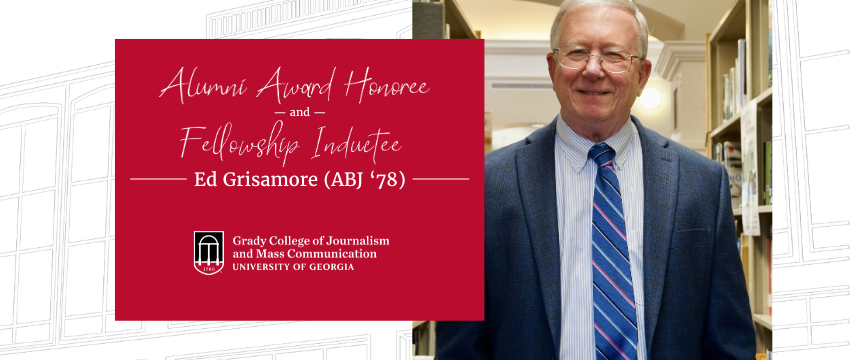
Fellowship Profile: Ed Grisamore (ABJ ’78)
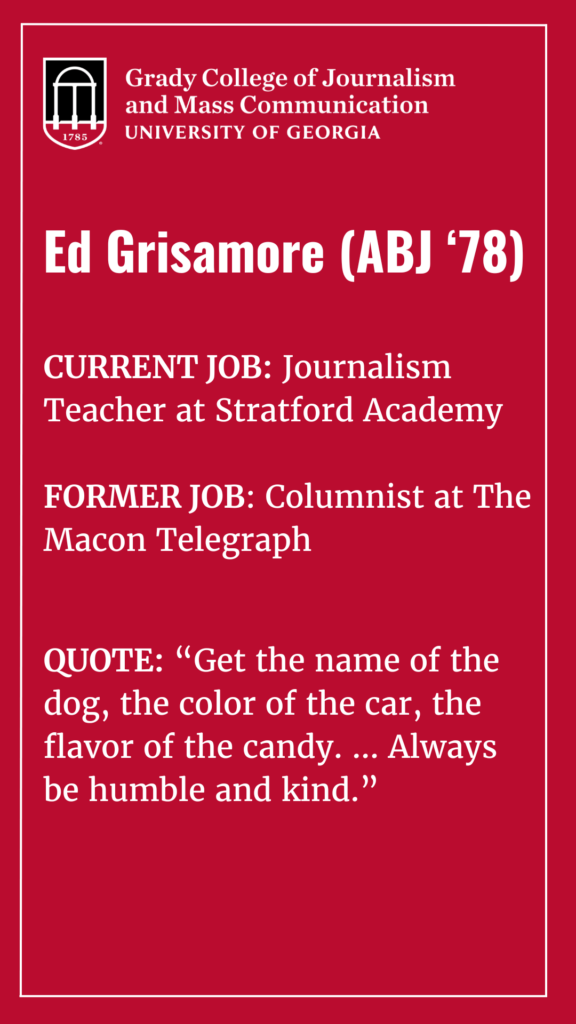
Congratulations to Ed Grisamore (ABJ ’78) on being named the 2024 John Holliman Jr. Lifetime Achievement Award recipient and a Fellowship inductee. Named after the late John Holliman, Grady alumnus and former CNN reporter, the John Holliman Jr. Lifetime Achievement Award honors sustained contributions to the profession throughout a career.
Grisamore teaches journalism at Stratford Academy in Macon, Georgia, and writes a weekly column for The Monroe County Reporter. Grisamore was a columnist for The Macon Telegraph for 36 years before retiring in 2015. While there, he covered sports and features, but was most known for his local news columns. Among many awards, he was the recipient of the 2010 Will Rogers Humanitarian Award from the National Society of Newspaper Columnists. Grisamore is the author of nine books and was named Georgia Author of the Year by the Georgia Writers Association for his book, “Never Put a Ten-Dollar Tree in a Ten-Cent Hole.’’ His 2006 audiobook, “Gris & That,” was nominated for a Grammy in the Spoken Word category. In 2008, Grisamore was inducted into the Macon Sports Hall of Fame for his writing contributions to sports.
Following are excerpts from an interview with Grisamore.
GC: When did you first know you wanted to be a writer?
EG: In the second grade, I published my own family newspaper on Blue Horse notebook paper. I wrote the stories, headlines and did my own comic strip. I would staple it together and sell it to my mom and dad for 10 cents. It was my first paying job in journalism. My mother, bless her heart, saved every issue.
In the 10th grade, my high school English teacher, Mrs. Janet Atwood, encouraged me to join the staff of the school newspaper at Riverwood High School in Sandy Springs. It was called The Raider’s Digest, and I was sports editor. When I was a senior, I won a first-place award in sports writing from the Georgia Scholastic Press Association. It was an affirmation of my life’s calling.
At UGA, I majored in journalism and minored in political science. It was a time when journalism schools were flooded with applications. After Watergate, everybody wanted to be an investigative reporter, the next Woodward and Bernstein.
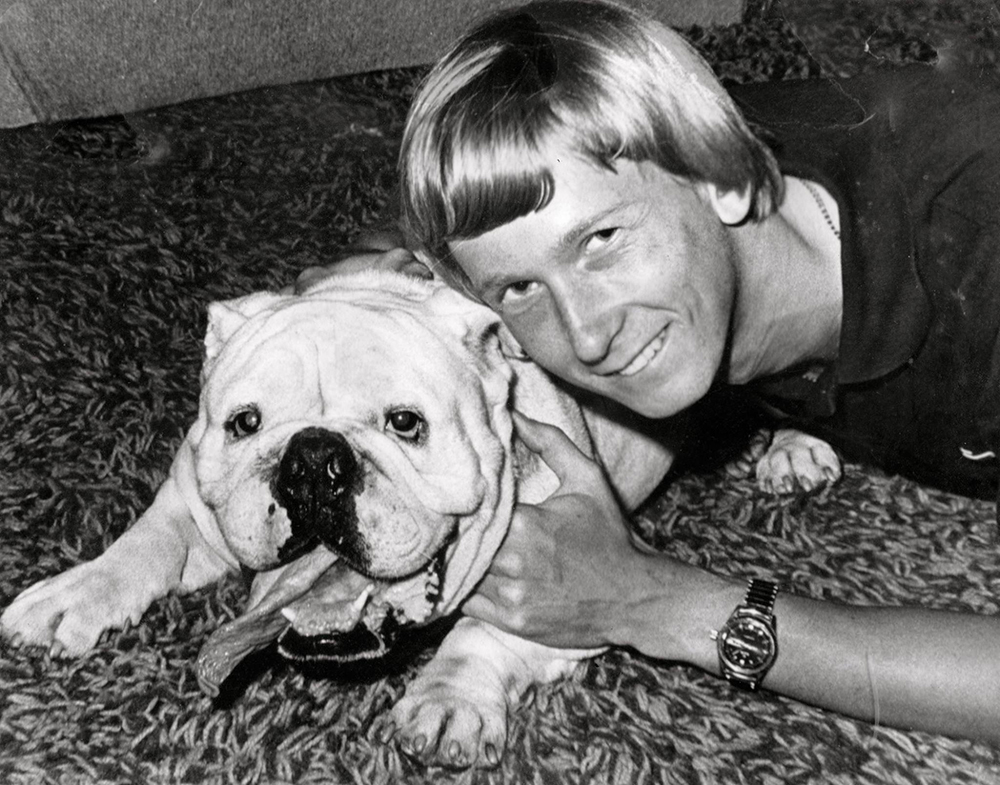
GC: How did your time at Grady College shape where you are today?
EG: I had excellent professors who challenged and encouraged me – Wallace Eberhard, Ernest Hynds, Al Hester, Al Wise and Frank Hawkins, to name a few. I still hear their voices in my head.
Dr. Eberhard was my adviser. His desk was piled high with papers to grade and newspapers and periodicals to read. There is no telling how many trees had to die to get into that small office. On the edge of his work space were these words: “The sign of a cluttered desk is the sign of an uncluttered mind.” He was an uncompromising fundamentalist when it came to facts, fairness, objectivity and ethics. Professor Wally kept right on teaching me during my post-graduate work in the School of Life. He sent supportive letters and emails, and we stayed in touch.
I took an editorial writing class from Mr. Hawkins my senior year. He had returned as a visiting lecturer at UGA, where he had graduated in 1933. He smoked fat cigars and told war stories. He cut his teeth at The Macon Telegraph and later became editor of the Pittsburgh Post-Gazette. He received the Grady’s Lifetime Achievement Award in 1981.
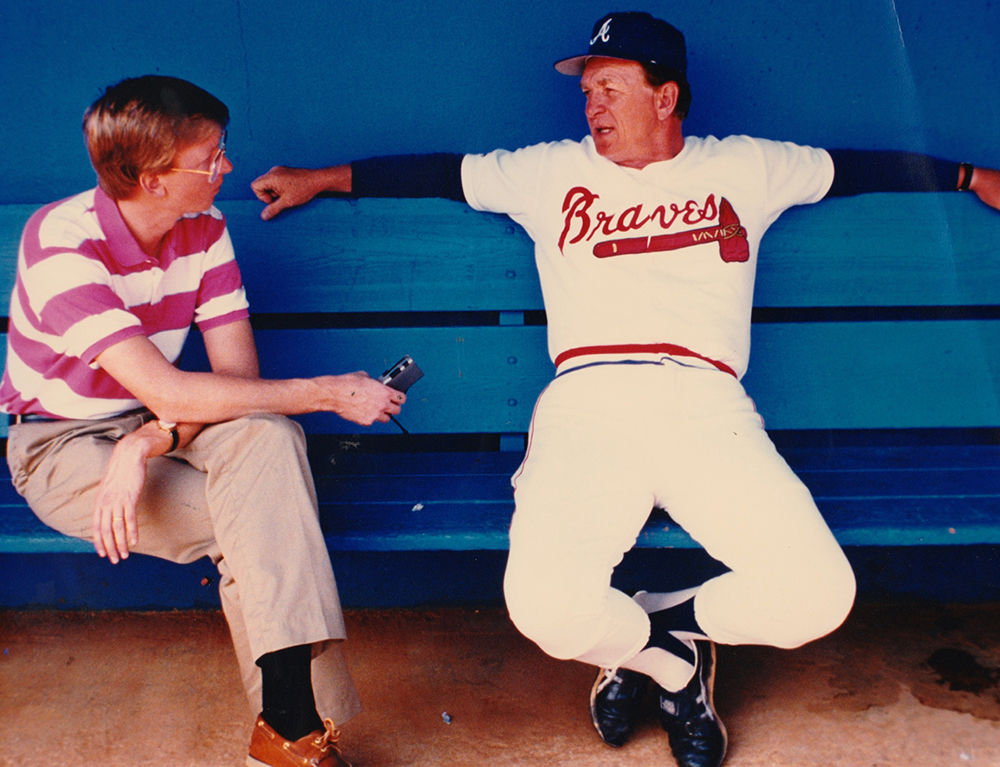
GC: You began your newspaper career as a sports writer. How did that experience strengthen and polish your writing style?
EG: Sports was a wonderful training ground to learn the craft. The late, great Red Smith of The New York Times once said people go to sporting events to have fun. And they read the sports section to have fun again. It’s a passionate audience. Sports writers learn to express themselves in a clear, colorful and creative style. They perform under deadline pressure and get both sides of the story because there is a winner and a loser. The hours are long and the workload is heavy. But you get to travel and meet people. I made lifelong friends and valuable contacts that still benefit me today.
After 18 years of sitting in cold press boxes and chasing stories all over the map, I was battle-tested for whatever came next. I built a large, loyal readership in sports, and I took those readers with me when I was named local/state columnist at The Telegraph in 1998. I wrote four columns a week for the next 16 years.
GC: What motivates you?
EG: Telling stories. Tom Brokaw, who spoke at Grady’s Broadcast Institute my senior year of college, famously said: “It’s all storytelling, you know. That’s what journalism is all about.’’
The world is losing its storytellers. It has become a lost art in this age of texting, sound bytes and social media posts. The message is out of focus. People communicate with one-sentence memes, silly emojis and dangling tweets. Journalism has a responsibility as the first draft of history. I teach high school journalism and telling stories is the cornerstone of my class. (S.O.S. Save Our Storytellers).
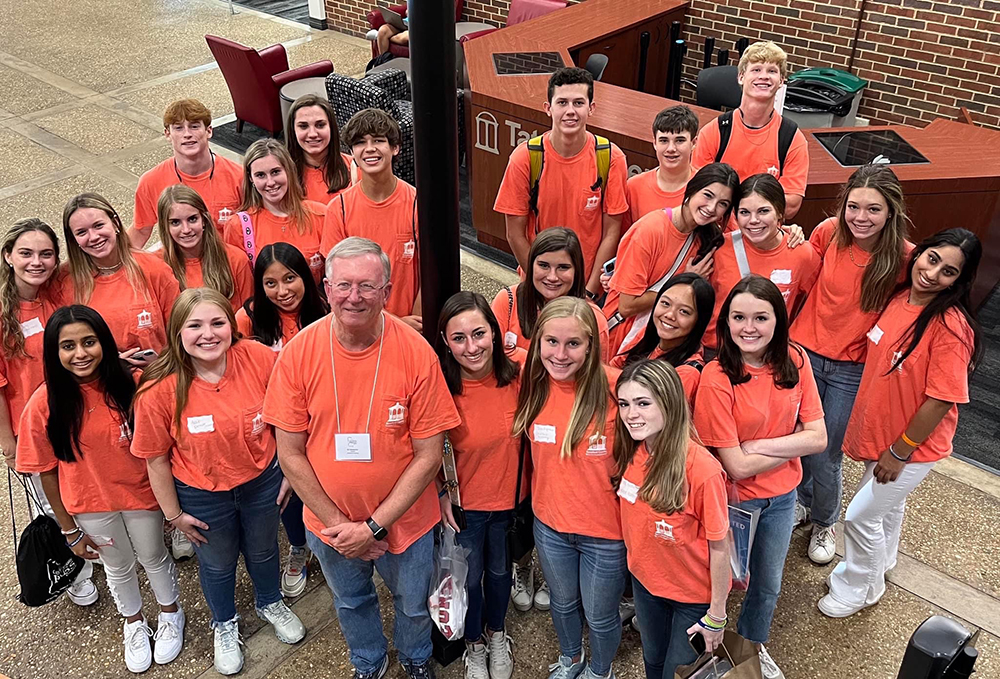
GC: What advice do you have for today’s Grady College students?
EG: Grow where you’re planted. … Don’t look at people as if they are invisible. … Listen. Be curious. Ask questions. … Don’t write like you text. … Revision. Revision. Revision. … Being a journalist means having homework every night for the rest of your life. … Tell the stories “AI” will never be capable of telling. … Take the backroads. (That’s where the stories are.) … Whenever and wherever you are tempted to use a semicolon, put a period. And don’t use exclamation points. F. Scott Fitzgerald once said they are like laughing at your own joke. … Grit is an important attribute. It means to be loyal and committed. Grind. Persevere. Stick to it. … Plan your work and work your plan. … Be punctual. Arrive 15 minutes early. If you’re five minutes early, you’re 10 minutes late. … Details. Get the name of the dog, the color of the car, the flavor of the candy. … Always be humble and kind.
GC: What does this recognition mean to you?
EG: I used to say making someone’s refrigerator door was the highest honor in journalism. Until now, the highlight of my professional life was receiving the 2010 Will Rogers Humanitarian Award, presented by the National Society of Newspaper Columnists. It recognizes a newspaper columnist for making a difference in his or her community.
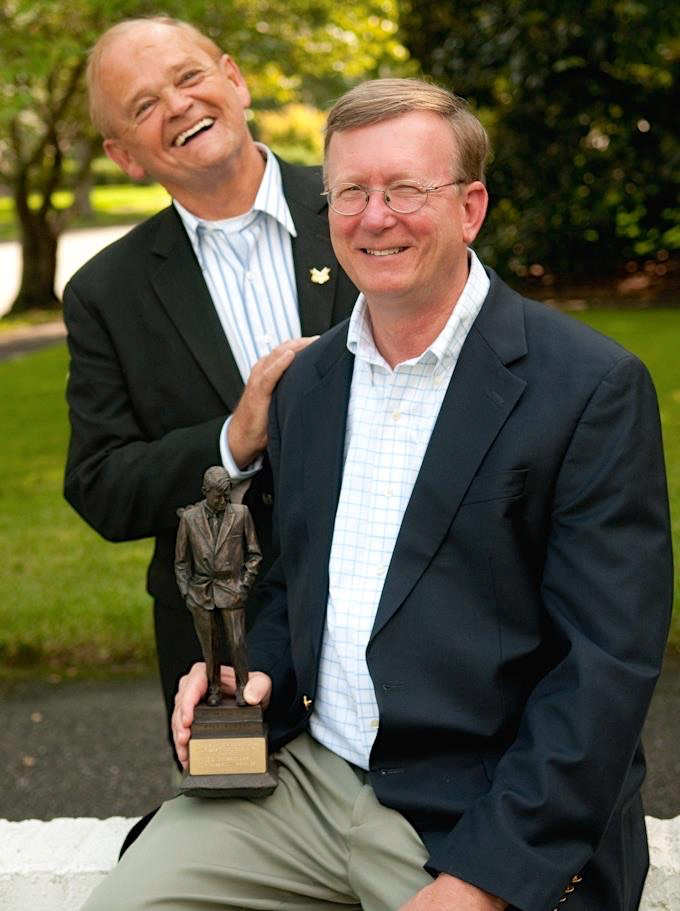
When Dean Charles Davis called to tell me I would receive the John Holliman Jr. Lifetime Achievement Award, his words were: “This is the big one.’’ I haven’t been this emotional since my children were born.
The list of past recipients is like a roll call of giants. Eight had roots at The Macon Telegraph. The first honoree, Tom Johnson, began working in the Telegraph sports department when he was in high school and is one of my heroes. Gene Patterson and Frank Hawkins began their early newspaper careers in Macon. Don Carter and Bill Ott are Telegraph legends. Executive Editor Billy Watson hired me, and Harley Bowers was my boss. I worked side-by-side with Randall Savage for many years. He won the Pulitzer Prize in 1985.
My path has crossed with so many others – Claude Felton, Jim Wooten, Carrol Dadisman, Jim Minter, Gene Methvin, Dan Magill and Chris Holcomb. Ernie Johnson Jr. and I go back to our freshman year when we lived on the seventh floor at Russell Hall. He was hired by WMAZ-TV for his first job in television and met his wife in Macon.
There’s not a day of my professional life where I don’t think about Billy Watson. He gave me the best advice I ever got in this business. He said to write about everyday folks who might otherwise never have their name in the newspaper. Ordinary people with extraordinary stories.
I am blessed with a wonderful and supportive family. I stand on the shoulders of friends, colleagues, mentors, teachers, readers and all the folks who shared their stories with me. To God be the glory.
The Fellows will be inducted and recognized along with the 2024 Alumni Award recipients during the annual Grady Salutes event. This year’s Grady Salutes will be a luncheon on Friday, April 26. Details about sponsorship information and reservations can be found on the Grady Salutes webpage.
Editor: Sarah Freeman, FreemanS@uga.edu